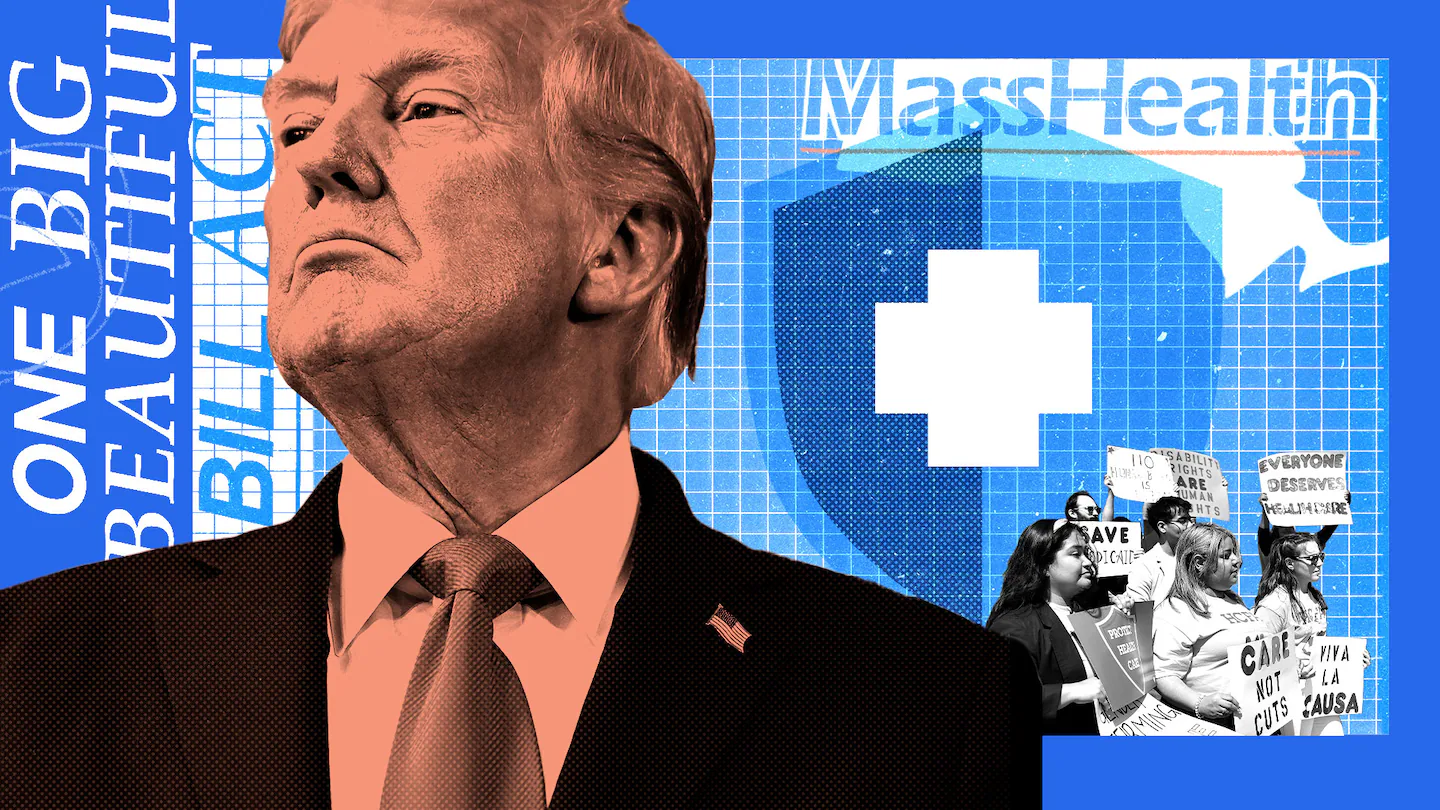
Every five years, MassHealth negotiates with federal Medicaid officials for what’s known as a Section 1115 Demonstration. It’s a waiver that gives MassHealth flexibility in how it delivers and pays for health care in our state. The current waiver is set to expire at the end of 2027. Negotiations for the next waiver will begin when MassHealth submits its proposal to the secretary of health and human services, Robert F. Kennedy Jr., at the end of 2026.
MassHealth’s new proposal should offer a radical deal: 1. MassHealth accepts an inflation-protected grant from Washington. 2. In return, MassHealth gets to make its own decisions about how to reduce costs and increase quality. And 3. If MassHealth does reduce costs, it gets a share of those cost savings from the federal government.
Currently, Medicaid is like a credit card that the federal government issues to states. The rewards program is good; the federal government pays 50 to 90 percent of the expenses. But the terms and conditions are bad: Washington restricts and second-guesses smart spending. For example, it wraps red tape around pilot programs to better treat addiction.
After next year’s midterm elections, when the Big Beautiful Bill takes effect, the rewards program will be worse — there will be at least a 10 percent cut to federal funding for MassHealth. And the terms and conditions will be way worse. Most damaging will be eligibility paperwork that will kick hundreds of thousands of adults off coverage. This will raise emergency room wait times and insurance premiums by hundreds of dollars a month for all of us.
It’s time to cancel this credit card. Instead, Massachusetts should ask Washington for a cash advance. One sum every year, with no terms and conditions.
Most important would be calculating that sum. The federal Office of Management and Budget (OMB) and MassHealth would each calculate their projections for Massachusetts’ overall Medicaid budget. This requires each to forecast inflation and utilization: how much more expensive medical services will get each year and how many more patients will use those services. This is not an exact science. Mental health utilization, for example, has been greater than many health insurers expected. So the forecasting and negotiation should adjust annually during the five-year waiver, not just once at the outset.
The theme of the negotiations would be constant, though. Massachusetts would get more money each year through the cash advance, to reflect health care inflation. But that guaranteed sum would be slightly less than OMB projects the federal government would have spent that year in the baseline credit card model.
In exchange for that haircut, MassHealth would get two unprecedented wins. First, full flexibility. It can deliver and pay for health care free from Trump’s rules, like restrictions on reproductive care. Second, shared savings. MassHealth gets bonus payments if its interventions reduce costs for Medicare, the federal health insurer for Americans over 65.
There’s risk, but the rewards are greater. MassHealth could deliver better care, particularly primary, behavioral, and elder services. And it could contain costs.
Freed from federal rules and bureaucracy, MassHealth could braid together benefits. Medicaid, welfare, food stamps, home-heating relief, and rental assistance all put federal dollars in reach of the same population. MassHealth could streamline eligibility and enrollment. It could laser focus on impact for children. It already insures 4 in 10 children in Massachusetts, so MassHealth is well-positioned to quarterback the full playbook of services that improve children’s health and wellness.
Fewer restrictions from Medicaid would also unlock pilot programs. MassHealth is the primary payer for mental health and addiction services in the state. Massachusetts is home to world-leading innovation in both. Our community behavioral health centers are better prepared to treat these conditions than Washington, where DOGE is shuttering the Substance Abuse and Mental Health Services Administration.
MassHealth is already making strides in paying for value instead of volume. It is two years into a program in which it pays the state’s 17 accountable care organizations (ACOs) for patients’ total cost of care. ACOs are organizations led by doctors and other health care providers, and they are financially accountable for the quality and cost of the care. This experiment is meant to drive a shift away from fee-for-service medicine toward more investment in primary and preventive care, in particular.
The experiment is promising. Good models abound for how to improve it. One ACO, the Community Care Cooperative, is linking together and empowering community health centers across Massachusetts. It’s delivering high-quality primary care at low cost. For patients with complex conditions, another ACO, the Program for All-inclusive Care for the Elderly, might be a template, because it weaves together social and medical services to reduce overall costs. And all ACOs, particularly the 15 run by five health plans, should be under more pressure to reduce administrative and financial overhead. MassHealth could experiment and improve faster with more flexibility than the federal government allows now.
Some of those improvements will save Medicare money. Medicare Part A pays for hospital care for the over-65 population. Part B pays for outpatient treatment, like doctor visits or ambulance services. MassHealth pays for long-term services and supports (LTSS), either at home or in nursing facilities, for that same population. When MassHealth innovates with LTSS to reduce hospital visits, Medicare saves money. But MassHealth gets no share in those savings.
For years, MassHealth has sought shared savings with the federal government. Neither Democratic nor Republican administrations have agreed. This next waiver negotiation needs to get to yes.
Most in Massachusetts health circles will agree that MassHealth benefits from more autonomy. But some may criticize this proposal as too risky. The status quo is the riskiest bet of all, though. The Trump administration is adding bureaucracy designed to deny people health care. The number of emergency room visits by the uninsured will go up, costing everyone else billions more. Simultaneously, the Trump administration is cutting funding for health and nutrition benefits.
MassHealth cannot afford that. Its per-member spending is climbing by double-digit percentage rates. Indeed, no one can afford this. Health premiums overall are rising twice as fast as wages.
Massachusetts has always been at the cutting edge of health care. Democrats have always prioritized health care. Democrats in Massachusetts should offer a better plan than just someday taking back the House, Senate, and White House. We should negotiate this waiver as a demonstration. Massachusetts can show the nation a better way on health care — just as we did with the Affordable Care Act — that delivers quality primary, behavioral, and elder care, at lower cost.



